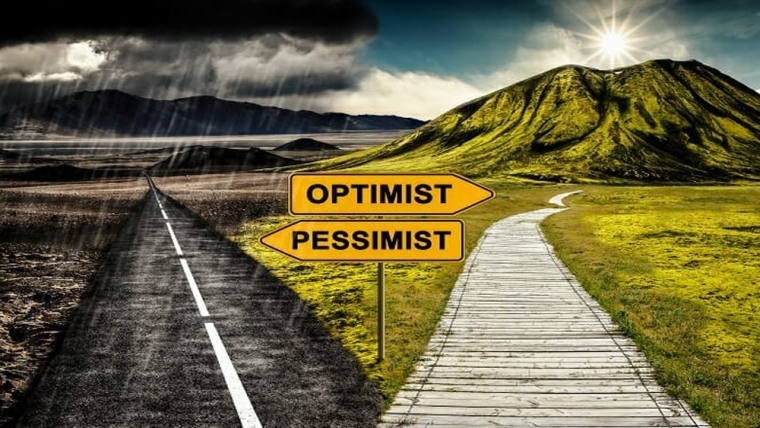
By Sheryl Sutherland*
When it comes to saving and investing be a pessimist but be an optimist too. We should emulate the belief of the ancient Egyptians; seven years of plenty will always be followed by seven years of famine. So while enjoying the good years, they planned for the bad.
These days a more structured view validates this concept; consider the work of John Littlewood, a mathematician who believe that “miracles” were simply statistics. His law said that miracles, or events, happen at the rate of about one a month.
The proof of the law is simple in our daily lives, each day, we hear and see things happening at the rate of one per second, that’s 30,000 a day, or about a million a month. Mostly, these events are insignificant but the chance of a major event is about one per million events.
Littlewood’s Law tells us to expect a miracle every month but the reverse is just as likely. The chance of one in a million things happening is as true for terrible events as well as miracles. Firestorms, pandemics, political meltdowns, financial crises. This is gloomy to say the least – so save like a pessimist thus acknowledging the statistics which tell us how common bad news is.
Then, invest like an optimist. Why? Disasters bring innovation, we have seen that over the last long few years. Innovation stimulates the economy which gives the optimistic investor an edge, or better odds. Then the magic of compounding puts wind in your financial sails. Optimistic investing when it comes down to it is realising there’ll be an inevitable chain of short-term setbacks and disappointments.
A digression from this topic; a comment relating to last weeks column on China in relation to the growth of consumerism as a factor in company profits. The co-founder of brand Kiwis Kitchens expects Chinese sales will account for at least 25% of the company’s business in the next few years. Auckland-based toothpaste maker Grin Natural made similar reports. Good to see New Zealand companies getting on board for China’s growth.
*Sheryl Sutherland is director of The Financial Strategies Group, and author of Girls Just Want to Have Fund$ – Every Women’s Guide to Financial Independence, Money, Money, Money Ain’t it Funny – How to Wire your Brain for Wealth, and co-author of Smart Money – How to structure your New Zealand business or investments and pay less tax. You can contact her here.
7 Comments
Saving and investing...wow Im thinking the best position to take is be a CALCULATOR ...Liquidity is very under rated in a country where credit availability and RE reigns. Snuff today has an article on an individual that lost half a million trading CFD's then if you look at Kiwisaver average returns being pessimistic or optimistic wont change much....lol Im very wary of stocks and shares although the logic of knowing millions of dollars of fresh money weekly enter the markets via super/kiwi type schemes etc should indicate that the odds of skimming a profit are reasonable but what cannot be overlooked is RISK and it is ever present . At what point should a saver become an investor? Is it all really a gamble as the snuff article person says? I think deep down its easy to determine the saver from the investor and that is the saver overflows with liquidity no matter what the scale of income present. Be a calculator and avoid risk like the plague I say.... the turtle and the hare....now I wait for the high rollers to tell me who dares wins...lol
https://www.stuff.co.nz/business/money/301018463/i-lost-halfamillion-tr…
Many novice investors are unable to make the distinction between investment and speculation.
Here is one such definition from Warren Buffett, a reknowned and successful investor, sums it up pretty well: “If you are an investor, you’re looking at what the asset or business will do. If you’re a speculator, you’re primarily a forecaster on what the price will do – independently of the business.”
Short term trading in financial markets is a high risk and speculative activity. This is very different to long term investing - the traditional buy and long term ownership of shares over decades.
The other issue is that the individual was trading financial products that themselves were high risk financial products - lots of leverage involved in these products. Contracts for difference (CFD's) have a lot of leverage.
There are many financial products that are designed to enrich the product sponsor, rather than the end investor with a long term investment time frame. These financial products enable the individual to speculate on price movements. Where there is demand from individuals, product sponsors will design a financial product to meet that demand in order to earn their commissions and investment fees - e.g internet funds in the 1999 - 2000 internet bubble - many products which ended up closing down due to losses to investors and redemptions by investors which then meant that this financial product was unprofitable for the fund sponsor.
Buying shares of good businesses, with good management teams and holding them for a long time can create tremendous wealth for retirement. There have been many millionaires created from those who are long time shareholders of Berkshire Hathaway, Apple, and Google (and financed their purchase without the use of any debt).
Investing is a skill that can be learned over time if the correct framework is selected. Avoid the dangers that lead to large losses in financial markets - the key ones being short term trading and use of high amounts of leverage.
Most people do not know how to identify the good businesses, with good management teams and the price at which to buy the shares.
For funds that are not needed in the next 5 years, in that case, consider the advice of Warren Buffett for the know nothing investor.
"My money, I should add, is where my mouth is: What I advise here is essentially identical to certain instructions I’ve laid out in my will. One bequest provides that cash will be delivered to a trustee for my wife’s benefit. (I have to use cash for individual bequests, because all of my Berkshire shares will be fully distributed to certain philanthropic organizations over the ten years following the closing of my estate.) My advice to the trustee could not be more simple: Put 10% of the cash in short-term government bonds and 90% in a very low-cost S&P 500 index fund. (I suggest Vanguard’s.) I believe the trust’s long-term results from this policy will be superior to those attained by most investors – whether pension funds, institutions or individuals – who employ high-fee managers. "
The “when” is also important. The main danger is that the timid or beginning investor will enter the market at a time of extreme exuberance and then become disillusioned when paper losses occur. (Remember the late Barton Biggs’ observation: “A bull market is like sex. It feels best just before it ends.”) The antidote to that kind of mistiming is for an investor to accumulate shares over a long period and never to sell when the news is bad and stocks are well off their highs. Following those rules, the “know-nothing” investor who both diversifies and keeps his costs minimal is virtually certain to get satisfactory results.
" the idea of buying an index fund over time is not to buy stocks at the right time or the right stocks. It’s to avoid buying them at the wrong time,"
Top post CN, I hope some will follow your advice!
The value in your comment can’t be understated. Alas, it’s too hard to follow for most. Warren Buffet is one of a handful of people who have directly impacted my life. I credit him in part with my retirement next year @58 yrs. Play the long game, sacrifice, sacrifice, sacrifice and the rewards will come.
"Disasters bring innovation, we have seen that over the last long few years. Innovation stimulates the economy which gives the optimistic investor an edge, or better odds. Then the magic of compounding puts wind in your financial sails"
So very true, and repeatedly proven by history.
I am waiting for the few flagellant high priests of doomerism in this site to start thundering that we are all f..d, that the planet is doomed, that we all are a step away from extinction, that the current economic system is due to collapse in the near future, that we are all collectively going to pay dearly for our past sins etc.... LOL
Thank you for trying to cheer us up by quoting some of our best material.
Of course, it won't work...
Not sure why you are a pessimist if you are a saver, try and find some other form of investment that pays out monthly with zero worries or time taken to manage it.

We welcome your comments below. If you are not already registered, please register to comment
Remember we welcome robust, respectful and insightful debate. We don't welcome abusive or defamatory comments and will de-register those repeatedly making such comments. Our current comment policy is here.